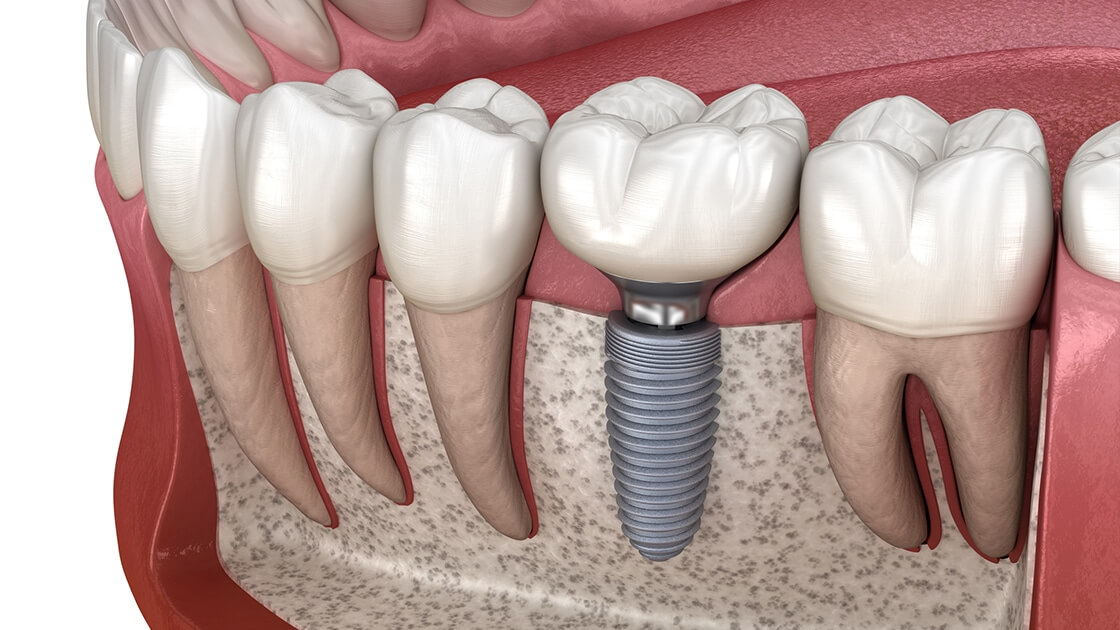Dental Implants
People who have lost one or more teeth frequently turn to dental implants as a replacement. They are a durable treatment that can give patients the confidence to eat, speak, and smile. Now we will give you a thorough explanation of dental implants, including what they are, how to acquire them, the advantages and hazards of receiving them, and how to take care of them.
Table of contents
What are Dental Implants?
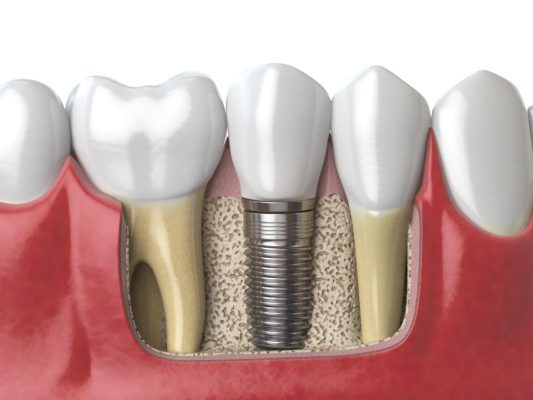
Dental implants are prosthetic tooth roots that are inserted into the jawbone through surgery. They are created using biocompatible materials, such titanium, and are intended to bond with the bone, creating a sturdy base for a bridge or replacement tooth.
There are various types of dental implants, including zygomatic, subperiosteal, and endosteal implants. Zirconia and titanium are two of the components of dental implants.
You may also like: Get Implants for Life
Types of Dental Implants
One of the most common tooth replacement alternatives today is dental implants. They offer a long-term replacement for missing teeth since they are made to feel, look, and operate much like real teeth.
The implant, the abutment, and the dental crown are the three primary components of a dental implant. The dental crown is the artificial tooth that is placed on top of the abutment and is connected to the implant via an abutment, which is a connecting piece that is surgically inserted into the jawbone.
Dental implants come in a variety of forms, each with a special set of advantages and disadvantages. A closer look at the most common kinds of dental implants is provided below:
| Type of Dental Implant | Description | Ideal for Patients With |
| Endosteal Implants | Placed in the jawbone, most common type of implant | Enough healthy jawbone to support implant |
| Subperiosteal Implants | Placed on top of the jawbone, beneath the gum line | Insufficient healthy jawbone to support endosteal implant |
| Zygomatic Implants | Anchored to the zygomatic bone in the cheek | Severe bone loss in the upper jaw |
Endosteal Dental Implants
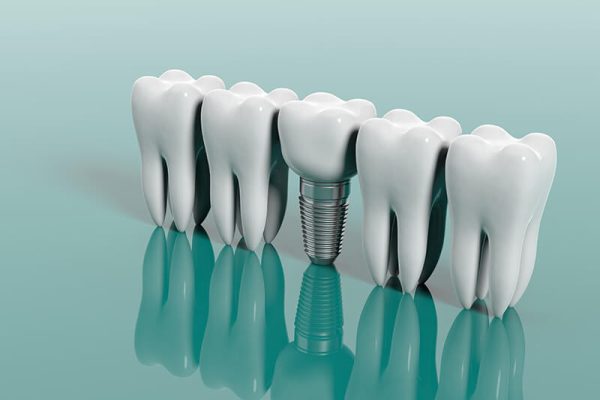
The most popular form of dental implant utilized nowadays is endosteal. A titanium screw that is surgically implanted into the jawbone makes up these implants. Three to six months must pass after the screw has been inserted for the implant to fully integrate with the jawbone.
An abutment is fastened to the top of the screw after the implant has fully fused, and a dental crown is then positioned on top of the abutment.
For patients who have enough strong jawbone to sustain the implant, endosteal implants are excellent. However, a patient may need a bone graft before an endosteal implant may be implanted if they have lost bone as a result of gum disease or other problems.
Subperiosteal Dental Implants
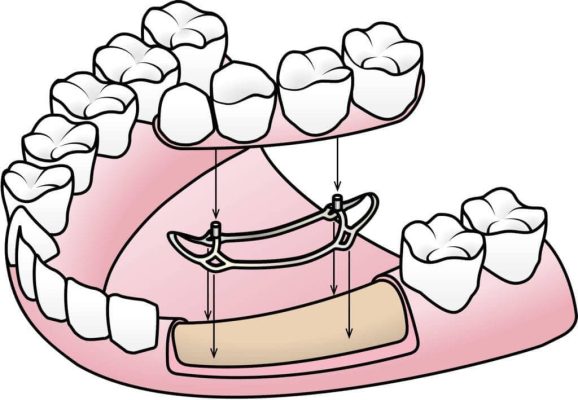
A particular kind of dental implant called a subperiosteal implant is positioned above the jawbone but below the gum line. Patients who lack sufficient healthy jawbone to support an endosteal implant are treated with this kind of implant.
The metal framework that supports subperiosteal implants has the form of a horseshoe. The gums are sewn back into place, and the framework is placed on top of the jawbone. The framework bonds with the jawbone while the gums recover, providing a solid foundation for the dental crown.
Zygomatic Dental Implants
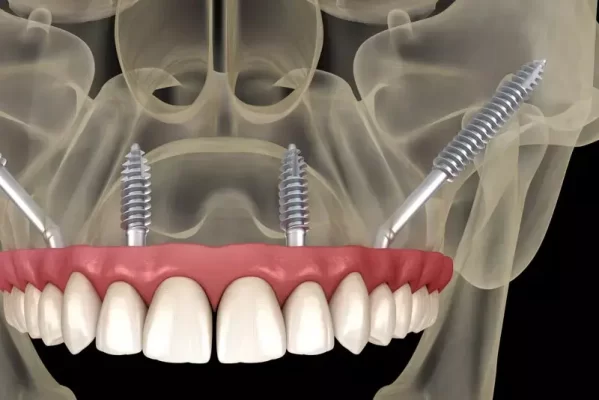
Called zygomatic implants are utilized for patients who have severe upper jaw bone loss. Zygomatic implants are attached to the zygomatic bone, which is found in the cheekbone, rather than the jawbone.
Patients who have been advised that they are not candidates for conventional endosteal implants due to substantial bone loss have a solid choice in zygomatic implants.
The Dental Implant Procedure
There are various steps in the dental implant process, including a preliminary consultation, implant implantation, a healing phase, and implant restoration.
Initial Consultation
Your dentist will evaluate your oral health and decide if you are a good candidate for dental implants at the initial appointment. They will also walk you through the process and address any queries you may have.
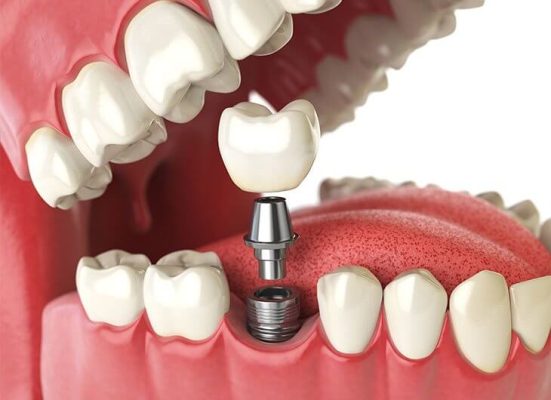
Dental Implant Placement
The surgical process of installing a dental implant include inserting the implant into the jawbone. If necessary, sedation is used in addition to local anesthetic during the treatment.
The dental implant will be inserted into the bone after the dentist makes a gum incision to expose it and drills a hole in the bone. Sutures are then used to seal the gum.
Healing Period
There is a three to six month healing period following the insertion of the dental implant. Osseointegration, a process that takes place during this time, allows the dental implant to join the jawbone. To ensure adequate healing, it’s crucial to refrain from applying pressure to the implant during this time.
Dental Implant Restoration
The dentist will attach an abutment to the implant once it has fully integrated with the jawbone. The abutment serves as a connector to join the implant to the bridge or replacement tooth.
The dental implant restoration is subsequently finished by securing the replacement tooth or bridge to the abutment.
Youtube Video About Dental Implants
Advantages of Dental Implants
They are a great option for replacing lost teeth since they improve dental health, speech quality, comfort, and convenience while also providing a long-term fix.
Improved Oral Health
Unlike dental bridges, which call for the removal or grinding down of nearby teeth, implants do not. In the long run, better oral health results from the longer-lasting preservation of more of the original tooth structure.
Better Speech
Patients who get dental implants are able to talk more clearly and with greater confidence since the implants do not slip or shift in the mouth.

Enhanced Comfort and Convenience
Implants are superior to dentures in terms of comfort and do not call for the use of any adhesives or specialized cleaning products. They do not need to be removed in order to be cleaned or soaked, which is another advantage that makes them more convenient.
Long-term Solution for Missing Teeth
Dental implants are a long-term option for missing teeth because, with the appropriate care and maintenance, they can last a person’s entire lifetime.
Improved Self-esteem
Dental implants provide the appearance and the feel of real teeth, giving patients with an increased sense of self-esteem as well as a more natural-looking smile.
Risks and Complications of Dental Implants
Implants, like any other type of surgical surgery, are not without their share of potential dangers and problems. These symptoms include discomfort and swelling, as well as infection, nerve damage, and the failure of an implant.
Pain and Swelling
After having implants placed, patients frequently experience discomfort as well as swelling. The majority of the time, over-the-counter pain medicines and ice packs are all that is required to alleviate these symptoms.
Infection
Any surgical operation, including placing implants, has the risk of infection. Antibiotics will be given to you by your dentist to lower the possibility of infection. Also to reduce the risk of infection, it is crucial to adhere to all post-operative recommendations.

Nerve Damage
The implantation of implants can occasionally result in nerve injury. It may result in tingling or numbness in the chin, tongue, or lips. By choosing a skilled dental implant surgeon, this issue may typically be prevented.
Implant Failure
If the implant does not correctly integrate with the jawbone or develops an infection, implant failure may result. Usually, additional surgery is also able to fix implant failure.
Care and Maintenance of Dental Implants
It must be properly maintained and cared for in order to be successful over the long term. This covers dietary issues, routine dental appointments, and oral hygiene routines.
Oral Hygiene Practices

Dental implants require the same level of oral care as natural teeth. Patients should floss once each day and brush twice everyday. An antibiotic mouthwash should also be used by patients to lower the risk of infection.
Regular Dental Visits

For the purpose of assessing the condition of the surrounding tissues and the dental implant, routine dental visits are crucial. Moreover, your dentist will do a thorough cleaning to get rid of plaque and tartar accumulation.
Dietary Considerations

Despite their strength, hard foods like ice and nuts can nevertheless harm dental implants. Furthermore, sticky foods that can tug on the implant should be avoided by patients.
Cost of Dental Implants
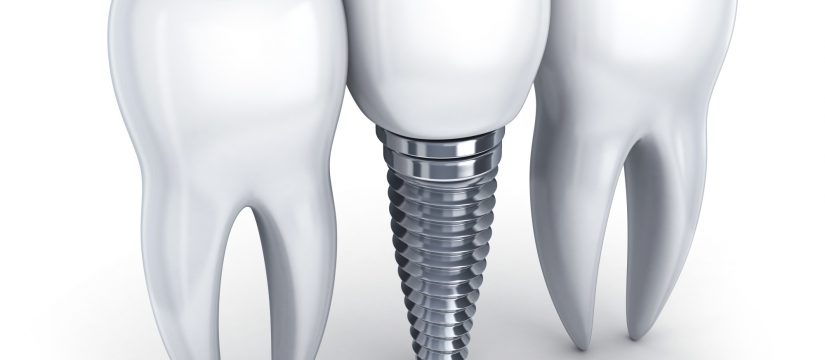
The type of implant, the number of implants required, and also the dental office’s location are some of the variables that affect the price of it.
It’s crucial to check with your insurance company because dental insurance may partially or entirely cover the cost of dental implants.
Final Thought
The common and reliable treatment for missing teeth is implants. They have a number of benefits, such as enhanced comfort and convenience, better speech, better dental health, a long-term replacement for lost teeth, and higher self-esteem.
Dental implants include risks and consequences, but they are generally safe and have a high success rate. It must be properly maintained and cared for in order to last. Ask your dentist if implants are a good option for you if you’re interested in getting one.
FAQ
With proper care, dental implants are long-term tooth replacement solutions. The American Academy of Implant Dentistry reports a 95% success rate and a 25-year lifespan for dental implants. Also dental implant’s lifespan depends on the patient’s oral health, habits, and the implant’s quality and components.
Dental implant surgery causes discomfort. Most patients say the pain is minor and manageable with over-the-counter painkillers. Also local anesthetic from the dentist or oral surgeon can help minimize pain. Swelling and pain following the operation can be addressed with medication and aftercare.
Titanium posts are surgically placed into the jawbone to replace lost tooth roots. Dental crowns are placed on implants to replace lost teeth. Due to their durability, dental implants are a popular tooth replacement option. They appear, feel, and operate like real teeth.
One dental implant can support one crown to replace a missing tooth. Yet, several dental implants can support a bridge or denture that replaces several teeth. Also the number of teeth supported by one or more implants depends on the patient’s oral health, the location of the missing teeth, and the restoration utilized.
Dental implants are effective tooth replacements, however they have drawbacks. Dental implants require many appointments and surgery, making them expensive and time-consuming. Infection, implant failure, and nerve injury may also occur. Finally, dental implants require healthy jawbones, thus not all patients are candidates.




